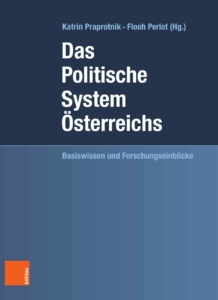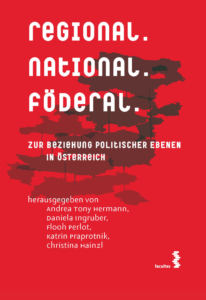Conduction: Daniela Ingruber
The research project deals with the Austrian Federal Constitution from a political science and political perspective. It examines whether a constitutional reform is necessary, and if so, in which areas. For this purpose, desk research will be conducted, including academic literature as well as social media and interviews with politicians from local councils, provincial parliaments and the National Council. Legal experts from various universities were also contacted and storytelling interviews were conducted with citizens in Austria. In addition, this research project is taken into account separately in the Democracy Radar.
The research project will enter its intensive phase in 2020 and 2021. At the present time, the following results have emerged:
Interim result so far: From a political science point of view, there should be no new constitution, as the current one is not only sufficient, but has proven to be extremely up-to-date and functional, especially in the wake of the political events of summer 2019 and the current situation surrounding Covid-19. However, there should be a modernisation with regard to digital and other technological developments, as well as a clean-up of constitutional laws added in the last decades, some of which have lost their meaning or changed in the meantime. The entire interaction in the Austrian Republic has changed in recent years. The constitution must (be able to) take this into account so that it remains alive (Fuchs 2010: 97).
Particularly affected by such modernisations and “decluttering” are, from the current state of research, the areas of direct democracy, electoral law, the description of who constitutes the electorate, a strengthening of parliament as well as a rethinking (but not an abolition) of the Bundesrat, in order to strengthen the Länder, but at the same time to give greater legitimacy to cooperation, which already works very well in the cooperation of the provincial governors (Pürgy 2010: 285) and this not only in the Länder conferences. The federalist order itself represents a very essential topic of this research. Other topics, such as the role of the federal president, relations with international institutions or the European Union, fundamental and human rights and others are also considered and incorporated into the reform proposals. However, from the current state of research, they do not represent the focus of the research.
Another aspect is already clearly emerging: since the Austrian state is structured as a federal state with federal provinces, the federal constitution cannot be thought of and dealt with without the provincial constitutions.
Moreover, the research project shows that not everything that should be structurally reformed in Austria has to be included in the federal constitution. This would only lead to further overloading, when in several areas it is rather a matter of streamlining and modernising. This also explains why in this research project not only a political science but also a political view is taken of the constitution.
It should also be mentioned here that although the various topics were discussed with colleagues from the Austrian Democracy Lab (thanks are due to Dr. Christina Hainzl and Dr. Katrin Praprotnik), the current interim results as research results and the resulting political science assessments are reflected by Daniela Ingruber.



 Federalism is one of the essential pillars of coexistence in Austria. On the one hand, its legislative, administrative and political significance is almost inconceivable without it. On the other hand, there are always debates about whether federalism is still needed in its current form or whether a reform in the direction of nationwide cooperation would make sense. Most of these discussions are controversial. The authors of this volume reflect on the relationships between political levels, starting with the current state and ending with concrete ideas for the future, which also include lateral thinking. A comparison with neighbouring countries completes the analysis.
Federalism is one of the essential pillars of coexistence in Austria. On the one hand, its legislative, administrative and political significance is almost inconceivable without it. On the other hand, there are always debates about whether federalism is still needed in its current form or whether a reform in the direction of nationwide cooperation would make sense. Most of these discussions are controversial. The authors of this volume reflect on the relationships between political levels, starting with the current state and ending with concrete ideas for the future, which also include lateral thinking. A comparison with neighbouring countries completes the analysis.